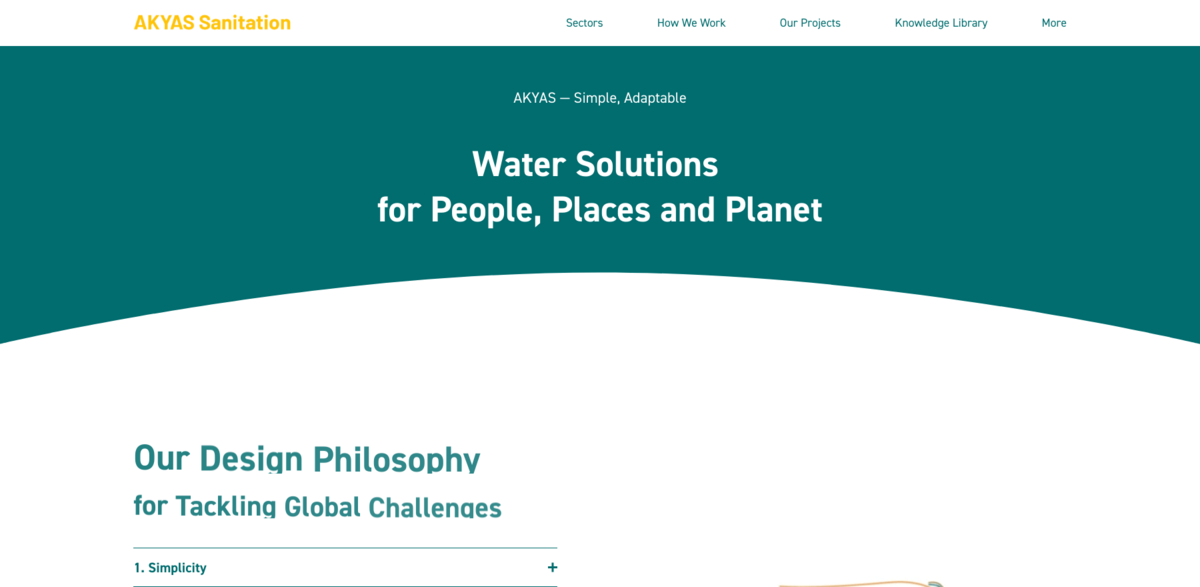What is AKYAS and Its Innovative Water Solutions?
AKYAS is all about transforming the way pit latrines work — turning them from simple containment units into onsite treatment plants. At the heart of this innovation is a fecal waste separator featuring a universal plastic fitting known as the “Effluent Diversion System” (EDU). This clever piece of tech needs no external energy, fits any 4-inch pipe, and can be installed practically anywhere there’s a non-sewered location with just a single drain — think pit latrines, households, or even multi-story buildings. Beyond that, AKYAS has developed an affordable complementary treatment system that also allows for the integration of reclamation systems, making sanitation smarter and more sustainable.
Main Benefits of AKYAS Solutions
Why does AKYAS stand out? Here are some key figures and facts that highlight its impact:
- Energy-free operation — no external power needed for the EDU system
- Universal compatibility — fits any 4-inch pipe, adaptable to various settings
- Onsite treatment — transforms pit latrines into treatment plants, reducing contamination risks
- Cost-effective complementary treatment system — affordable and easy to integrate
- Supports reclamation — enables reuse of treated waste, promoting circular resource use
Design Philosophy: Simplicity at Its Core
AKYAS believes the most powerful solutions are often the simplest. When faced with complex sanitation challenges, the approach is to seek clarity — breaking down problems to their root elements. This means designing solutions that are easy to deploy and scale, avoiding unnecessary complications. It’s a philosophy that values straightforwardness without sacrificing effectiveness.
Adaptability: Complementing Existing Systems
Rather than replacing existing infrastructure, AKYAS technologies are designed to complement and harmonize with them. This plug-in approach reduces waste and increases resilience. It’s about making progress possible across different contexts — without causing disruption or requiring massive overhauls. The flexibility means these solutions can work in diverse environments, from rural villages to urban buildings.
Tailored Solutions for Vital Sectors
AKYAS focuses on two critical sectors where water solutions can make a huge difference: (waste-)water management and agriculture. Each sector benefits from tailored approaches that address specific challenges. Whether it’s managing wastewater safely or supporting sustainable farming practices, the solutions are designed to fit the unique needs of these areas.
Project Impact on Sustainable Development Goals (SDGs)
- SDG 6: Clean Water and Sanitation — improving access to safe sanitation and water management
- SDG 11: Sustainable Cities and Communities — enhancing urban sanitation infrastructure
- SDG 12: Responsible Consumption and Production — promoting waste reduction and resource reclamation
- SDG 13: Climate Action — reducing environmental impact through energy-free and adaptable systems
- SDG 15: Life on Land — protecting ecosystems by preventing contamination
Connecting with AKYAS
For those interested in exploring these innovative water solutions further, AKYAS offers a clear path. Whether it’s through their environmental consultancy or sanitation expertise, they provide tailored support and guidance. Stay connected via LinkedIn or reach out directly by email at info@akyas-sanitation.com to learn more about how these adaptable, simple solutions can make a real difference for people, places, and the planet.





















